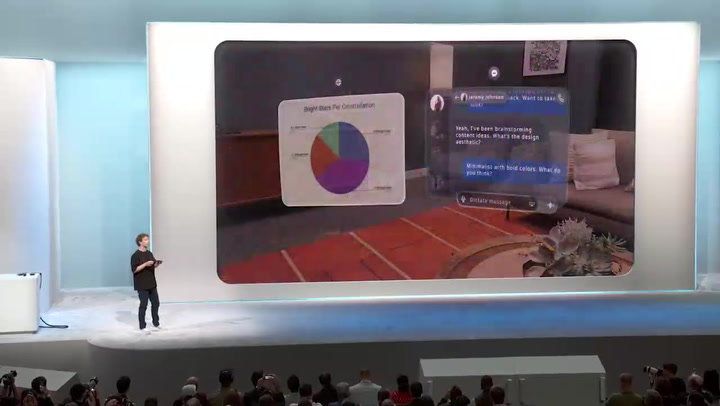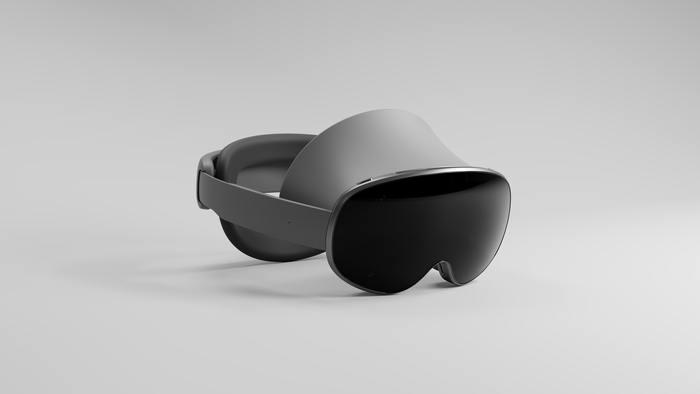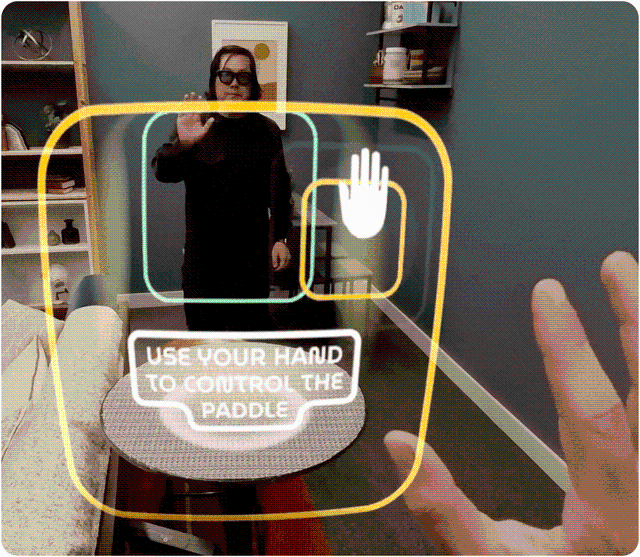Meta's Orion AR Glasses Transform the Future of Wearable Tech
Explore how Meta's Orion AR glasses redefine wearable technology by blending augmented reality with everyday interactions for a revolutionary digital experience.

Key Points
- Meta's Orion AR glasses utilize advanced holographic technology to seamlessly overlay digital content onto the real world, enhancing user interaction.
- The glasses feature a wrist-based neural interface, hand-tracking, and voice control, allowing intuitive engagement without traditional devices.
- With significant investments in AI, Meta aims to redefine communication and everyday tasks through wearables, targeting a consumer launch by 2027.
The tech world is awash with excitement following Meta's recent reveal of its latest innovation: the Orion augmented reality (AR) glasses. Unveiled by none other than CEO
during the annual Connect conference, these groundbreaking glasses promise to change how we interact with both the digital and physical worlds. As we stand on the brink of a new era in wearable technology, let’s explore how Orion seeks to blend the digital landscape seamlessly with our everyday life.
Introducing the Orion Technology
At first glance, the Orion glasses might resemble typical eyewear, but they're equipped with a wealth of advanced features that set them apart. Built from a magnesium alloy and powered by custom silicon, these glasses utilize holographic displays to project digital content over the real world around the user. Zuckerberg described them as "the most advanced AR glasses the world has ever seen", stating that their development involved overcoming significant technical challenges.

Key Features of Orion
The Orion glasses are not just about style; they represent a significant step forward in the field of augmented reality. Equipped with hand-tracking capabilities, voice control, and a revolutionary wrist-based neural interface, users can interact with the augmented environment in a natural, intuitive way. This marks a departure from traditional input methods like touchscreen gestures or keyboard commands.
One of the standout features of the Orion glasses is their ability to overlay information directly onto the user’s field of vision. Imagine receiving notifications, responding to messages, or even engaging in video calls— all without removing your focus from the world around you. During the presentation, a pre-recorded demo showcased this technology; for example, users played digital games and video chatted seamlessly through the glasses.
Meta's Vision for the Future
While the Orion glasses are still in prototype stage, Meta has big plans for their eventual launch. The company has set sights on a consumer release by 2027, anticipating that advancements in technology will reduce production costs and enhance usability. This forward-thinking vision is underpinned by significant investments; Meta has allocated tens of billions of dollars toward the development of AI and AR technologies.
Moreover, the Orion glasses come as part of a comprehensive strategy to shift user interaction from traditional devices like smartphones and desktops to wearable technology. Zuckerberg remarked, "For now, I think the right way to look at Orion is as a time machine", emphasizing the potential for these devices to redefine communication and engagement in our daily lives.
Emphasizing AI Integration
In conjunction with the Orion glasses, Meta continues to push the boundaries of artificial intelligence through its AI assistant, known as
. This assistant is set to offer functionalities that range from simple voice responses to complex interactions using advanced language models. The integration of AI with wearable technology will enable users to respond to inquiries and manage tasks hands-free.
AI voice capabilities will offer users a range of options, including celebrity voices such as
or
, further personalizing user experience. With over 500 million active users of Meta AI, the demand for these innovative features speaks volumes about the modern consumer's shift towards smarter technology.
Challenges and Implications
Despite these advancements, Meta faces hurdles as it seeks to bring the Orion glasses to market. Many consumers remain wary of wearable technology, especially concerning data privacy and artificial intelligence. Their skepticism is a challenge that Meta must navigate to achieve widespread acceptance. Building trust and demonstrating the practical benefits of augmented reality will be crucial in this endeavor.
Additionally, while there has been a prevailing skepticism about previous AR efforts, such as
, Mark Zuckerberg is optimistic that Orion will be different. The glasses are designed to integrate smoothly into everyday life rather than appear as novelty items.
The Orion AR glasses embody Meta's vision for the future— a future where digital and physical worlds coexist harmoniously, providing users with unprecedented connectivity and engagement. As we inch closer to their eventual rollout, one can only imagine the exciting possibilities that await. The digital landscape is ripe for a revolution, and Meta seems poised to lead the charge.


